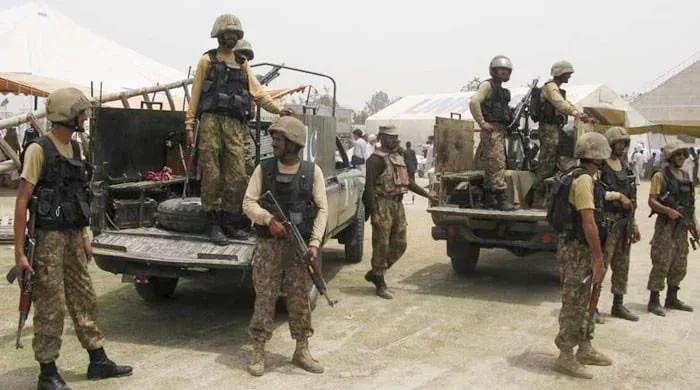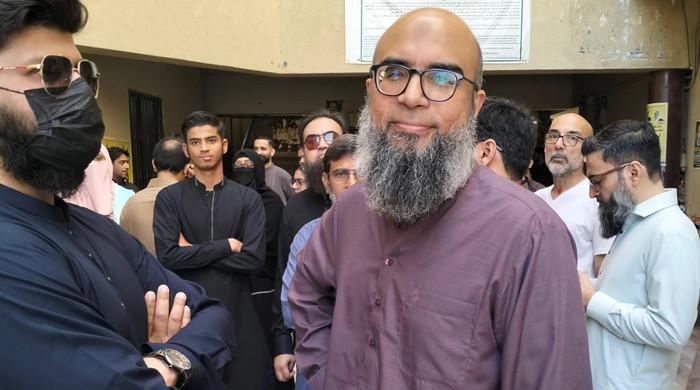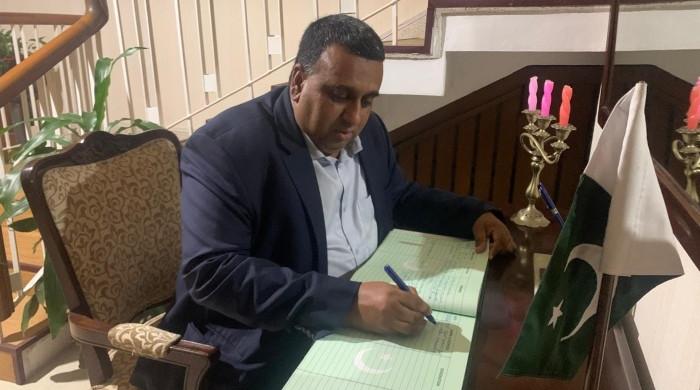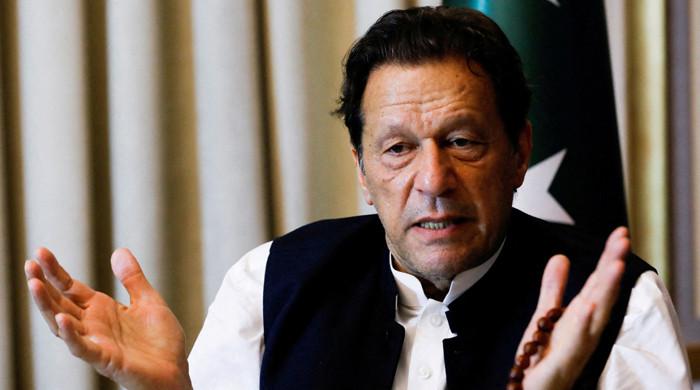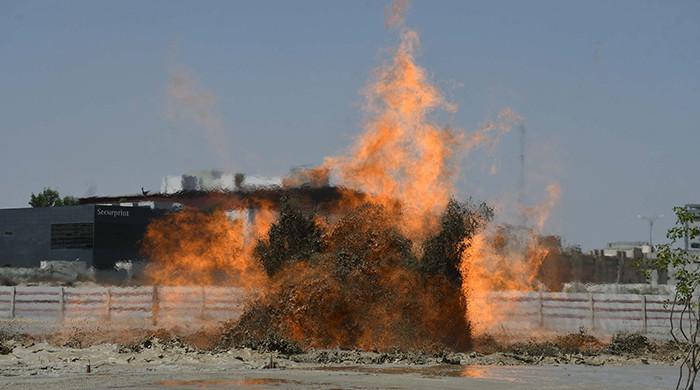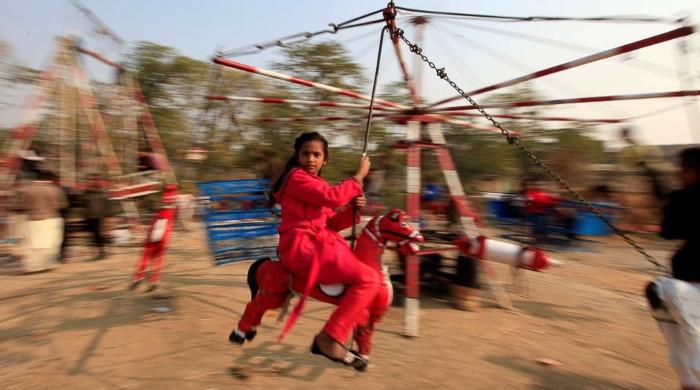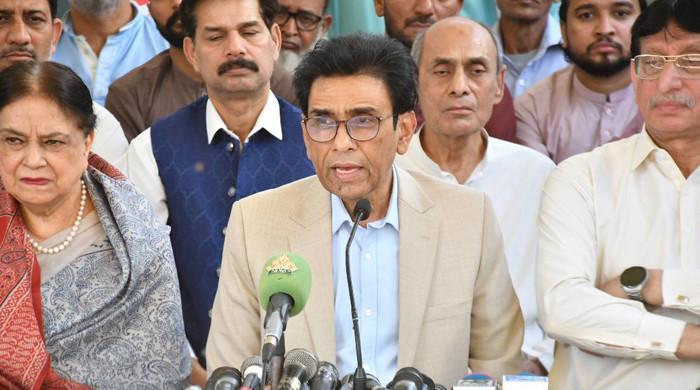Smog threat: Artificial rain in Lahore estimated to cost Rs350m
"Chinese experts will visit Pakistan soon for cloud seeding," says Punjab Interim Information Minister Amir Mir
November 24, 2023
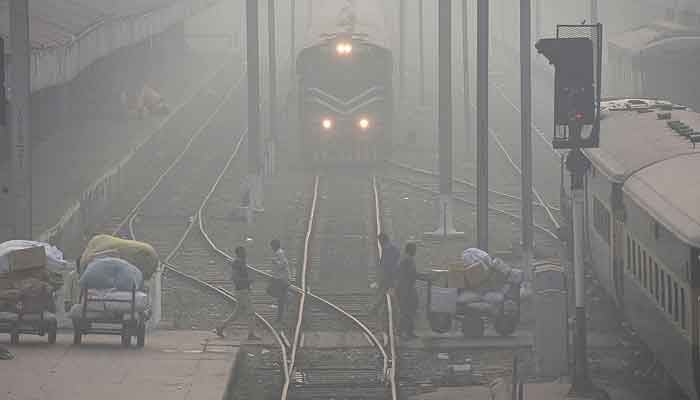
- Preparations are underway for artificial rain in Lahore.
- A summary in this regard has been moved to finance division.
- 'Punjab CM wants to experiment with artificial rain this year.'
LAHORE: As the Punjab government is planning to carry out artificial rain in Lahore to combat the severe smog levels in the provincial capital, the project is estimated to cost Rs350 million, according to sources in the Finance Ministry.
Earlier this week, Chief Meteorologist Chaudhry Aslam said that artificial rain is expected in Lahore next month and preparations were underway for it as the government ups its efforts to curb smog.
On Friday, the concentration of PM 2.5, or tiny particulate matter, in the air hit 269, considered very unhealthy, according to Swiss-based IQ Air. “PM2.5 concentration in Lahore is currently 43.8 times the WHO annual air quality guideline value.”
The well-placed sources said that a summary in this regard had been moved to the secretary of the finance division. The summary, however, would be subject to the approval by Punjab caretaker Chief Minister Mohsin Naqvi, the sources added.
‘Chinese experts will visit Pakistan soon’
Punjab Interim Information Minister Amir Mir said that cloud seeding is the most effective way for artificial rain, adding that matters have been settled with the Chinese experts in this regard.
“Chinese experts will soon visit Pakistan.”
Responding to a question, the minister said that the Punjab CM wants to experiment with artificial rain during the current year.
Artificial rain, also known as cloud seeding, is a weather modification technique. The process is carried out by sprinkling chemicals into clouds from a plane. The chemicals promote the formation of raindrops or snowflakes. It is used for rainfall in areas that are experiencing drought or poor air quality.
It is pertinent to mention here that the Pakistan Meteorological Department (PMD) successfully tested artificial rain in the past.
'Air pollution clouds'
Lahore, and most of the Punjab province, has remained gripped by heavy smog turning it into a “poisonous gas chamber” where citizens continue to face serious health problems. The Air Quality Index (AQI) of the city, in particular, remains in the top five or 10 spots, making it one of the most polluted cities in the world.
Sources in the Environmental Protection Agency (EPA) revealed that a number of furnaces in northern Lahore were operating at night and using sub-standard fuel such as rubber tyres, plastic and other materials while many other factories in different industrial estates of the city were also contributing to rising air pollution.
The sources said that a very half-hearted campaign was started against smoky vehicles and EPA’s claims of using PSCA cameras to take action against smoke-emitting vehicles was just a statement.
Countries in South Asia have seen a marked increase in industrialisation, economic development, and population growth over the past two decades, leading to increased demand for energy and fossil fuels.
While sources like industries and vehicles affect most countries, certain major contributors are unique to South Asia, including solid fuel combustion for cooking and heating, human cremation, and burning of agricultural waste.




